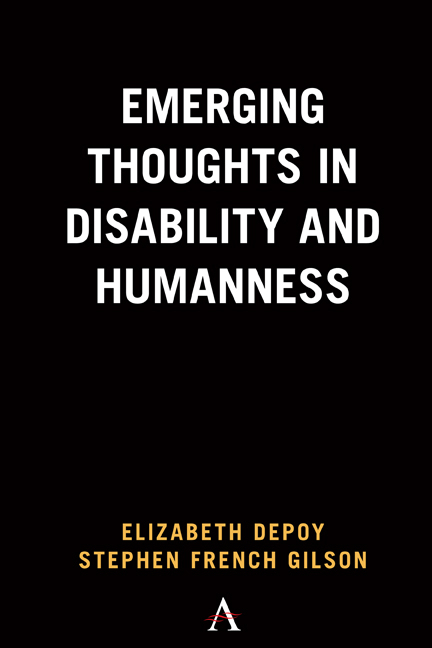Chapter 11 - Denial
Published online by Cambridge University Press: 13 May 2022
Summary
In this chapter we analyze denial, a complex set of processes and outcomes that result in prohibiting or ending characteristics possessed by the something elses within the boundaries of desirable humanness. Braidotti (2019) referred to the ancient Greek concept of zoe, a collective life force which extends beyond the individual or anthropomorphic bios. To an extent, zoe has great relevance to denial in that zoe instills life regardless of its container, and thus does not judge its normative acceptability as articulated in the notion of bios below.
Human existence is not only naturally given as animal life but is also assigned as a task: to exist humanly is to live life according to a certain form of life. (Heiden, 2020, 62)
Zoe is the antithesis of bios-based denial. We return to this theme in the final chapters of the book in which we take on rethinking humanness not as classical humanism, but rather as a broader, nonhierarchical conceptualization (Peterson, 2018). We thus leave the uplifting future ahead as a promise, as we move into a murky territory of denial, first examining dehumanization and infrahumanization as the initial processes that set the table for denial to be served. We then exemplify methods and strategies that are used to deny something else bodies.
As we have already introduced, the distinct existence of zoe and bios have been debated since ancient Greece. Can the body at work be separated from its life force? If so, how, and if not, what bodies should be denied zoe if any? In his most recent work, Smith (2020) takes on dehumanization primarily on the basis of constructed ideas of race, ethnicity, and gender. Although he proclaims that ableism and ageism, the two major areas of othering that we are addressing in this work, are not equivalent to his tenets of dehumanization, we do not fully agree. We did, however, find some of his theoretical framework relevant to our analysis. Recall that others suggest that dehumanization is a process which: (1) fails to distinguish the dehumanized from object or nonhuman animal; (2) stereotypes; (3) perceives the non or infrahuman as lacking characteristics believed as essential for human belonging; or (4) dementalizes the object.
- Type
- Chapter
- Information
- Emerging Thoughts in Disability and Humanness , pp. 163 - 178Publisher: Anthem PressPrint publication year: 2022



